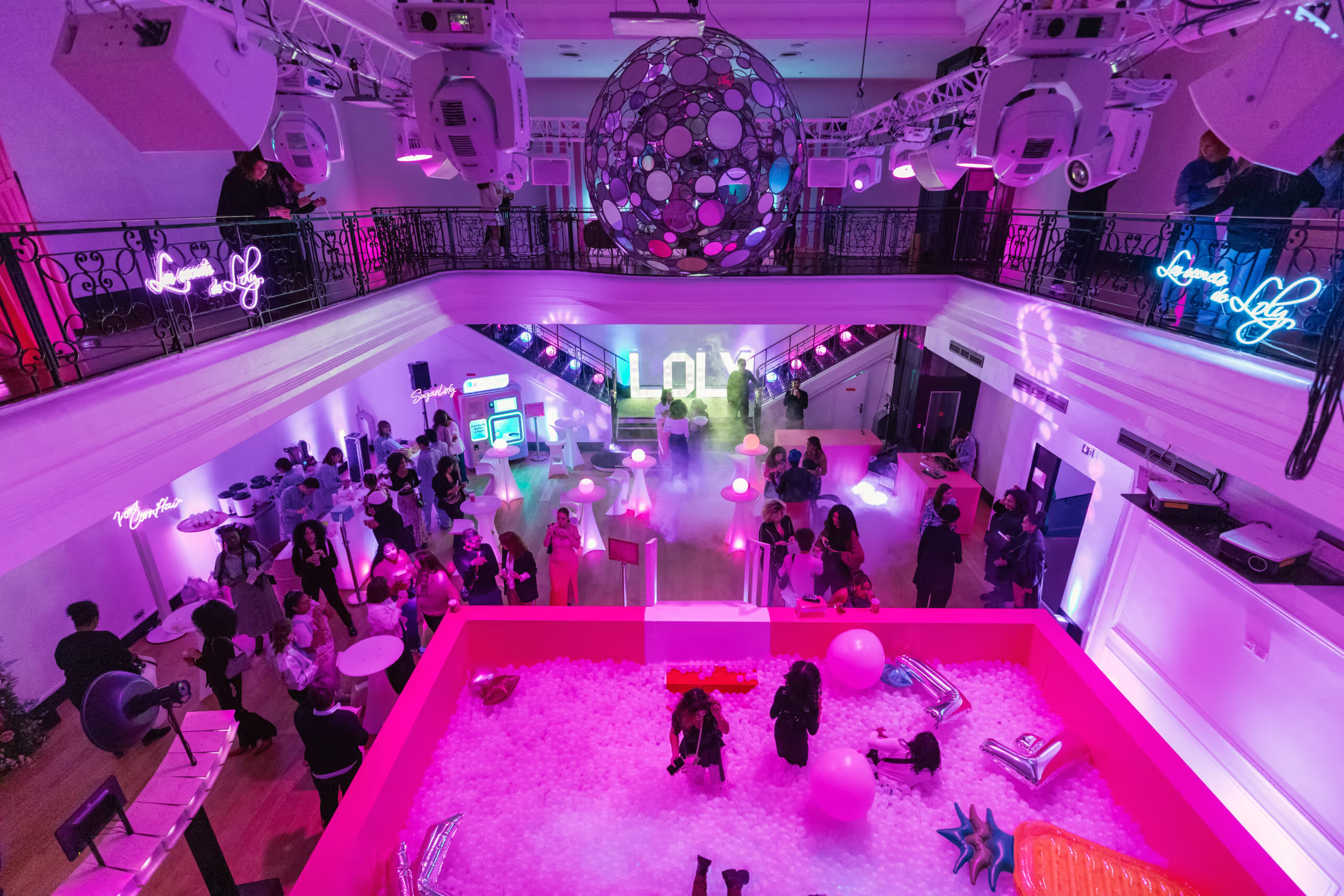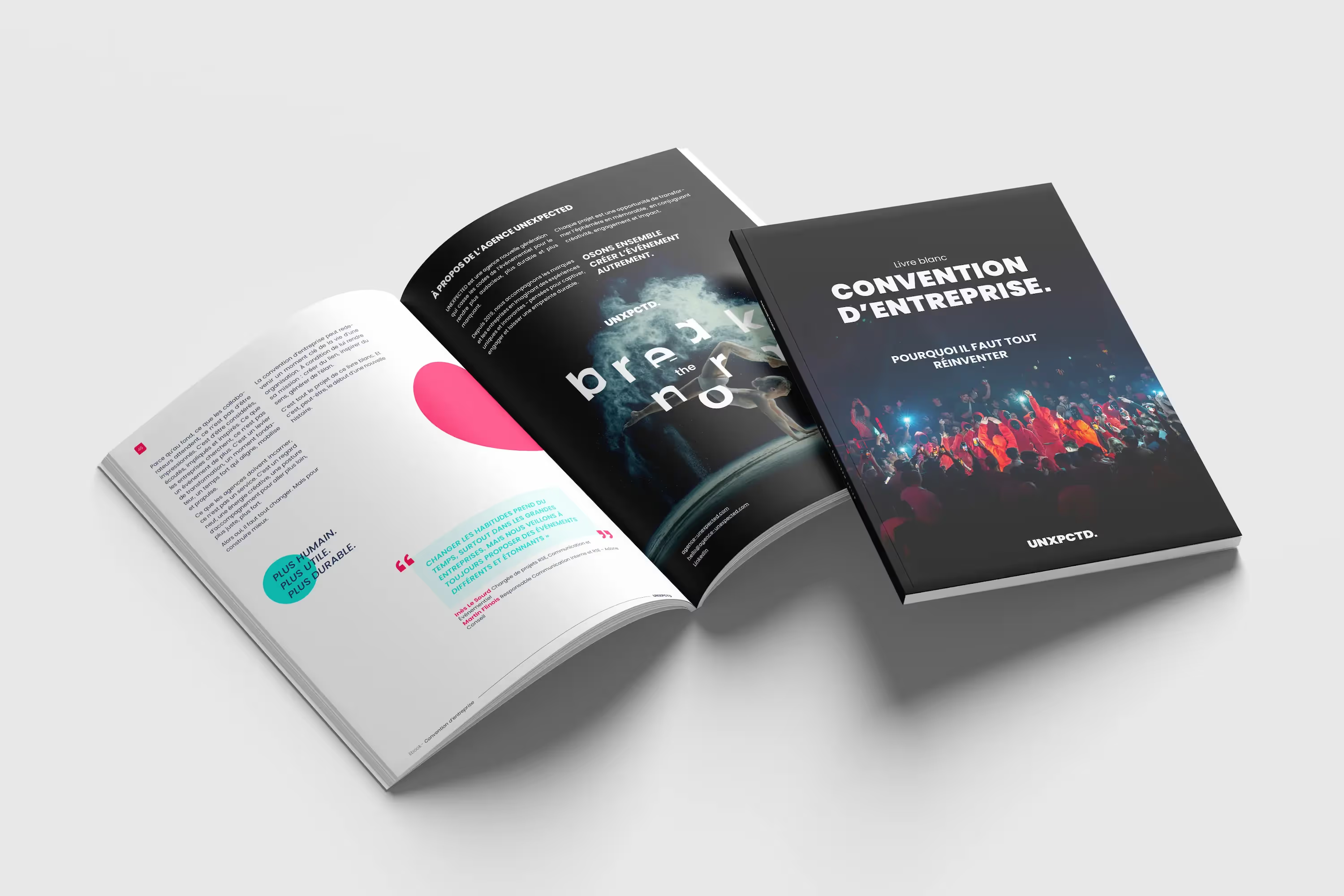The Corporate Agreement Put to the Test of a New World
For decades, corporate agreements have been a pillar of internal communication. A codified ritual, often expected, sometimes occurring, but always included in the company agenda as an indisputable highlight. This format, designed to align teams, transmitted a strategic vision or even strengthened cohesion, seemed intangible.
However, a shift is taking place. A quiet but powerful transformation is shaking the foundations of this traditional event. It does not come from technological innovation or economic change, but from a generational revolution.
The younger generations — Z and soon Alpha — are coming into companies with expectations, codes and references that are significantly different from those that have shaped the conventions so far. These employees no longer want to attend an event, they want to experience it. They don't want to listen anymore, they want to participate. They don't want to be targeted anymore, they want to be involved.
This mutation is not anecdotal. It requires a paradigm shift. Because in the face of audiences that no longer recognize themselves in yesterday's conventions, persisting in old formats is no longer only ineffective: it is counterproductive. The corporate event has not lost its relevance, but it is imperative that it rethink its form, language, pace, and especially its intention.
Hyperconnected, ultra-selective audiences in search of meaning
Generation Z, born between 1997 and 2010, grew up in a digital, fast, and interconnected world. She has integrated zapping reflexes, a logic of the instantaneous, an appetite for visual, short and impactful formats. Information is consumed in fragments, via TikTok, YouTube, Instagram. But far from being superficial, this generation filters, sorts, and judges very quickly what deserves its attention or not. And she doesn't forgive boredom or lack of consistency.
She arrives in the company with a new requirement: that of authenticity. She wants to understand the “why” before the “how.” She experienced events to be embodied, sincere, and in line with the values that the company claims to defend. Empty speeches, style effects, and narrations devoid of their substance no longer pass.
Behind Her, Generation Alpha is already looming. Born after 2010, it is native to a world where artificial intelligence, augmented reality and algorithmic personalization are the norm. While Generation Z has adopted digital codes, Generation Alpha is literally immersed in them. These future collaborators will not put up with rigidity, passivity, or waste of time. An event company that wants to remain relevant must already anticipate what these audiences require today: experiences that are engaging, meaningful, agile and deeply human.
These generations have in common an increased demand for interaction, co-construction and recognition. They don't want to be talked to anymore, they want to be listened to. The corporate agreement, if it remains top-down, unilateral, fixed, will not survive this culture shock.
From Fixed Format to Lived Experience: A New Grammar of the Event
Faced with these generational changes, the company must review not only the form, but also the purpose of its agreement. It is no longer a question of bringing together to transmit, but of bringing together to transform. The event must become a living, dialogical space, where each participant finds an active place, a reason to be present, an opportunity to interact.
The first transformation lever is That of experience. We can no longer be satisfied with a series of speeches on stage, punctuated by slides and videos. Attention is a scarce resource, and passivity kills it. To capture and maintain the interest of Generations Z and Alpha, you need to arouse emotions, engage the senses, stimulate the intellect but also the body. This Can Happen Through Immersive devices, concrete scenarios, moments of play or narration. The aim is not to impress, but to bring something to life. Because what you experience, you remember.
Then the event should become A place for co-construction. It starts well before D-Day. The younger generations want to be involved at the beginning: they want to understand the issues, participate in the definition of content, give their opinion on formats. During the event, they expect to be able to interact, question, and propose. And afterwards, they want to see the impact of their participation: projects that emerge, ideas that are retained, concrete follow-up given to discussions. Without this, the experience remains without consistency.
Finally, the language of the convention must evolve. It is no longer a question of putting on an institutional “show.” You have to tell a real story, with its tensions, its contradictions, its aspirations. Corporate storytelling, when embodied, can become a powerful lever for adherence. But it must be sincere, consistent, in line with actions. The dissonance is fatal: if the event says one thing and the daily life of the company shows another, the younger generations drop out instantly.
The Company as a Stage, The Convention as a Mirror
Behind this transformation of events, it is in reality the entire corporate culture that is at stake. Because convention can no longer be a nice break in a dissonant daily life. It is now seen as a faithful — or unfaithful — mirror of what the company really is.
Young collaborators do not expect a perfect staging, but a sincere embodiment. They want to see leaders speak with their words, express their doubts, share a vision. They expect moments of exchange where hierarchical relationships are temporarily suspended. They also want the form of the event to reflect the company's fundamental commitments: if the company says it is committed to the planet, the event can no longer multiply unnecessary trips, single-use buffets or goodies with no impact.
The event thus becomes a political act. A moment when the organization affirms, through form and content, what it is, what it wants to become, what it offers to its teams. There can no longer be a disconnect between the message and the experience. Generation Z is particularly sensitive to it. She looks for the smallest signs of alignment — or incoherence. And it is according to this criterion that she decides whether to commit herself... or not.
This requires the company to no longer entrust its agreement to an execution logic, but to a logic of strategic support. The role of the event agency becomes central here: no longer producing an event, but revealing a culture, building a story, embodying a posture. It is a profound and life-saving change in posture.
A Chance Worth Seizing, Provided You Dare
Many organizations are still hesitant to constantly transform their convention. For fear of failure, for attachment to habits, or for fear of not appealing to everyone. But immobility is no longer an option. Because the disconnect between the traditional format and the expectations of younger generations is becoming too great. And the challenge goes far beyond the mere success of an event: it is a question of nurturing commitment, of bringing out meaning, of building lasting relationships.
Generations Z and Alpha are not a threat to events. They are the future. They remind us that the company is, above all, a human community in search of meaning, recognition and transformation. The convention can once again become a powerful tool for meeting these aspirations. As long as you get rid of old reflexes, think of experience before format, meaning before planning, people before logistics.
The challenge is big. But the opportunity is huge.
Corporate Convention: Why We Need to Reinvent Everything
What if we stopped doing “business as usual”? What if we dared reinvent?
Tired of Predictable Formats, Endless Slides, Speeches Without Impact?
Us too.
So we took the problem head on:
- To transform the convention In Engaging Experience
- To Make A moment that really matters
- To inspire formats Sustainable, Striking, Daring
And it is from that moment on, that our white paper “Corporate agreement: why we have to reinvent everything” Saw the light of day.

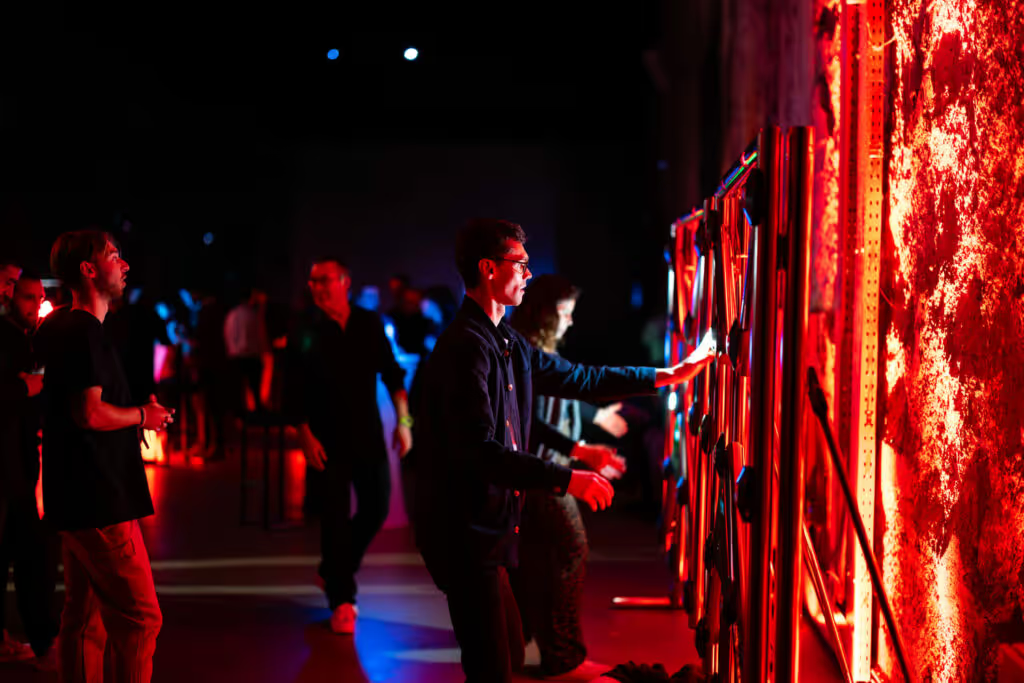
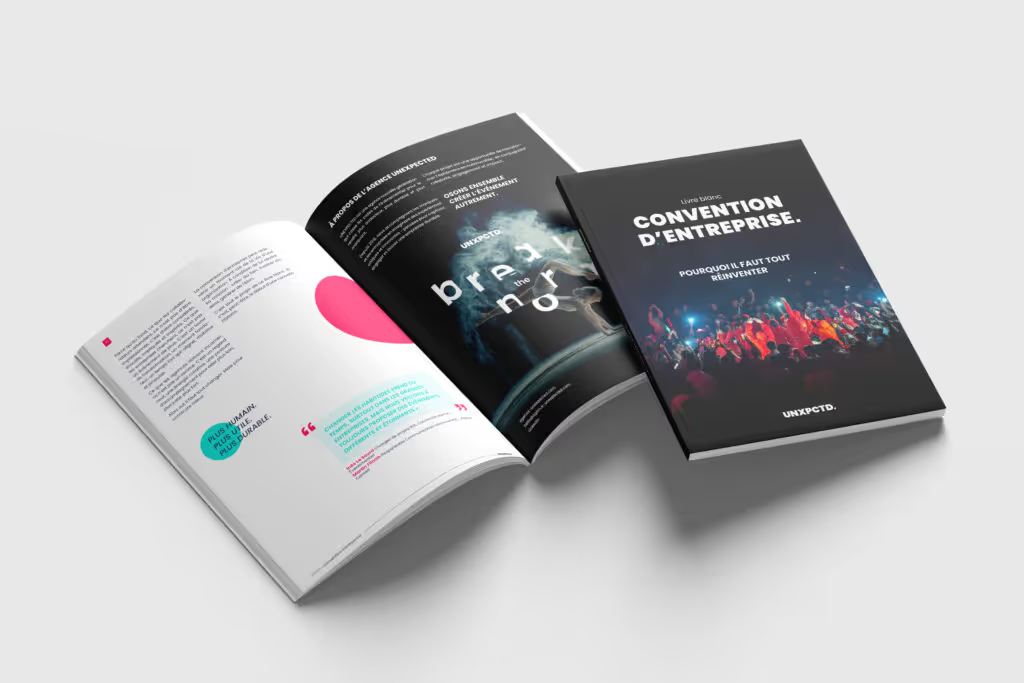
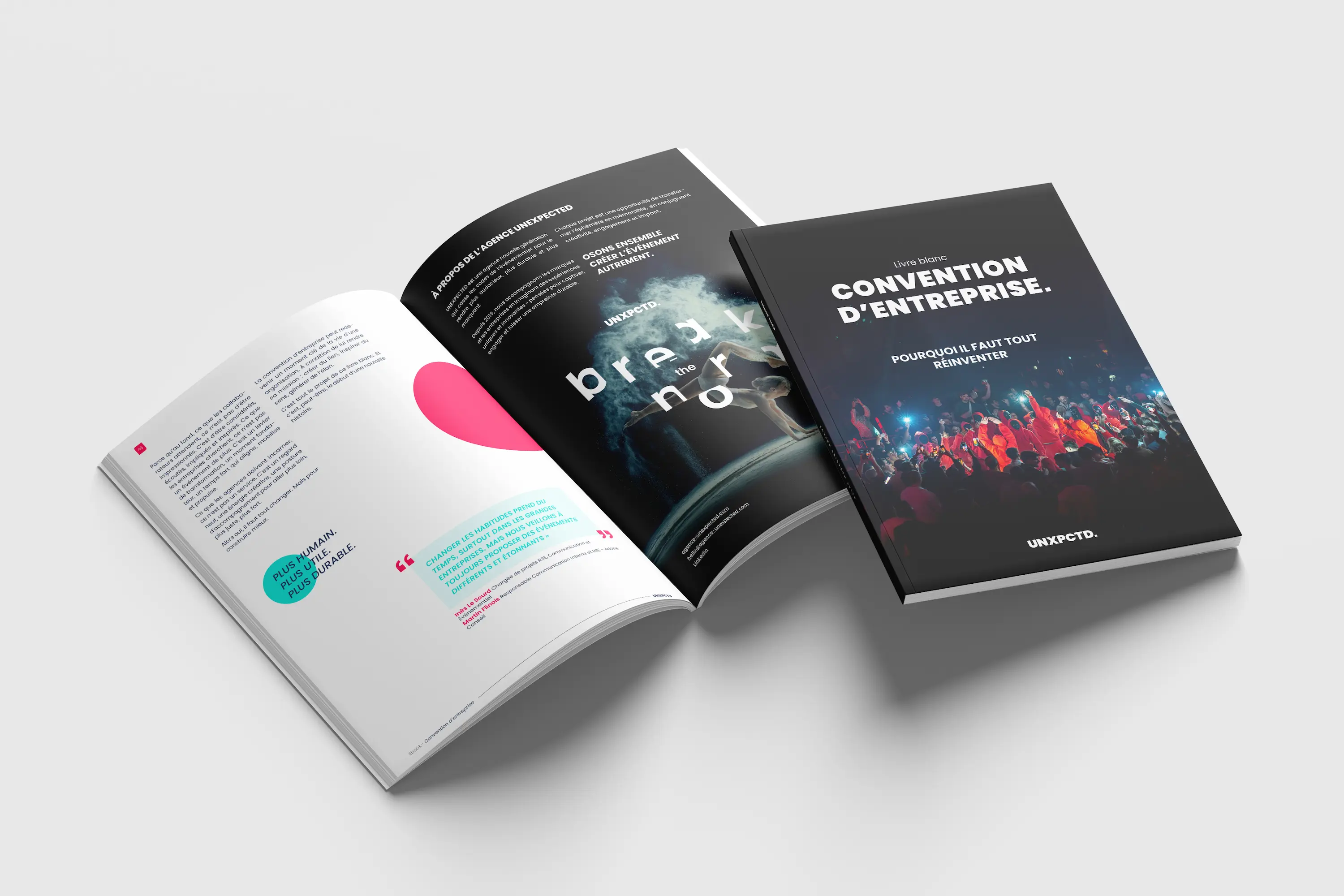


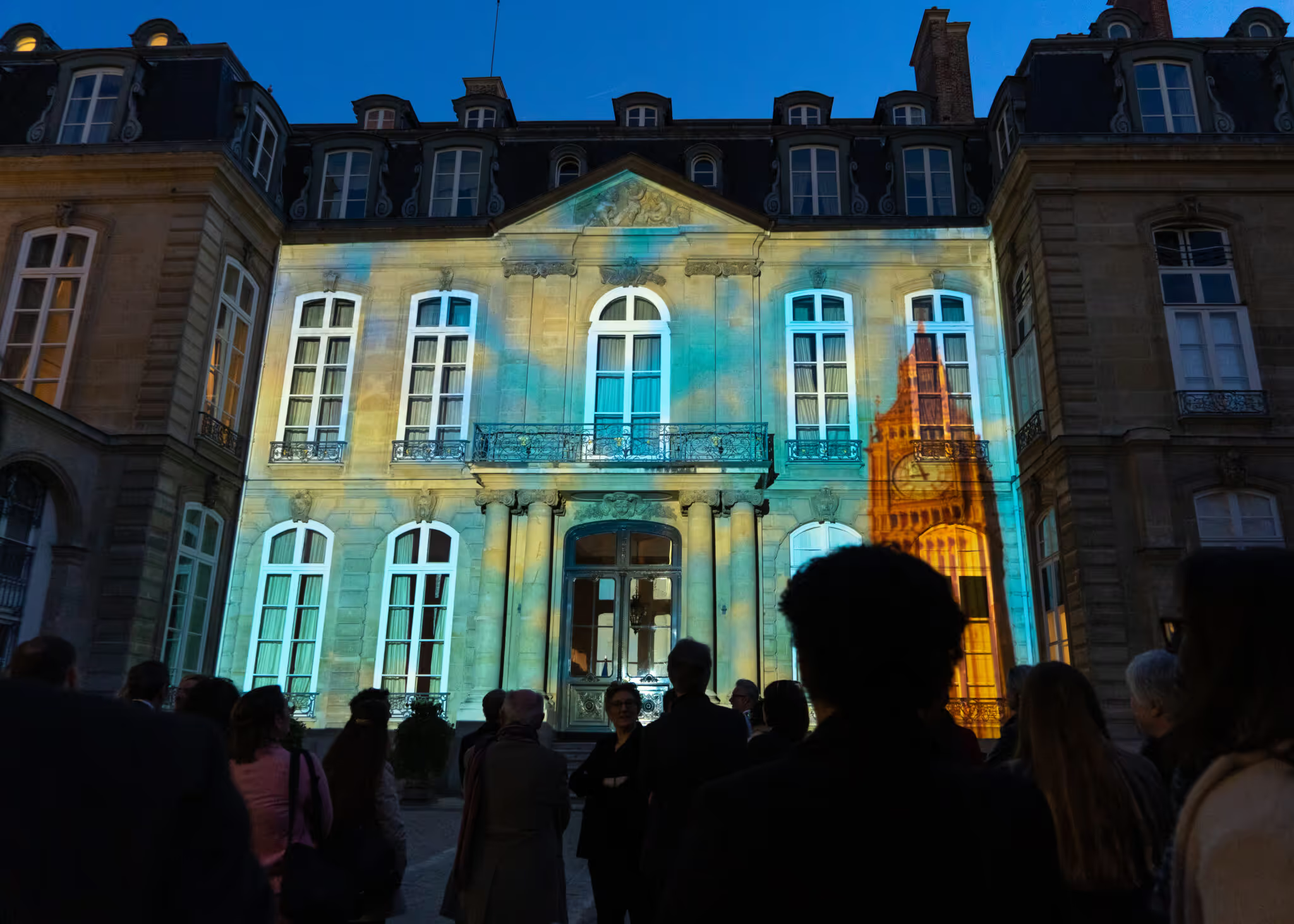
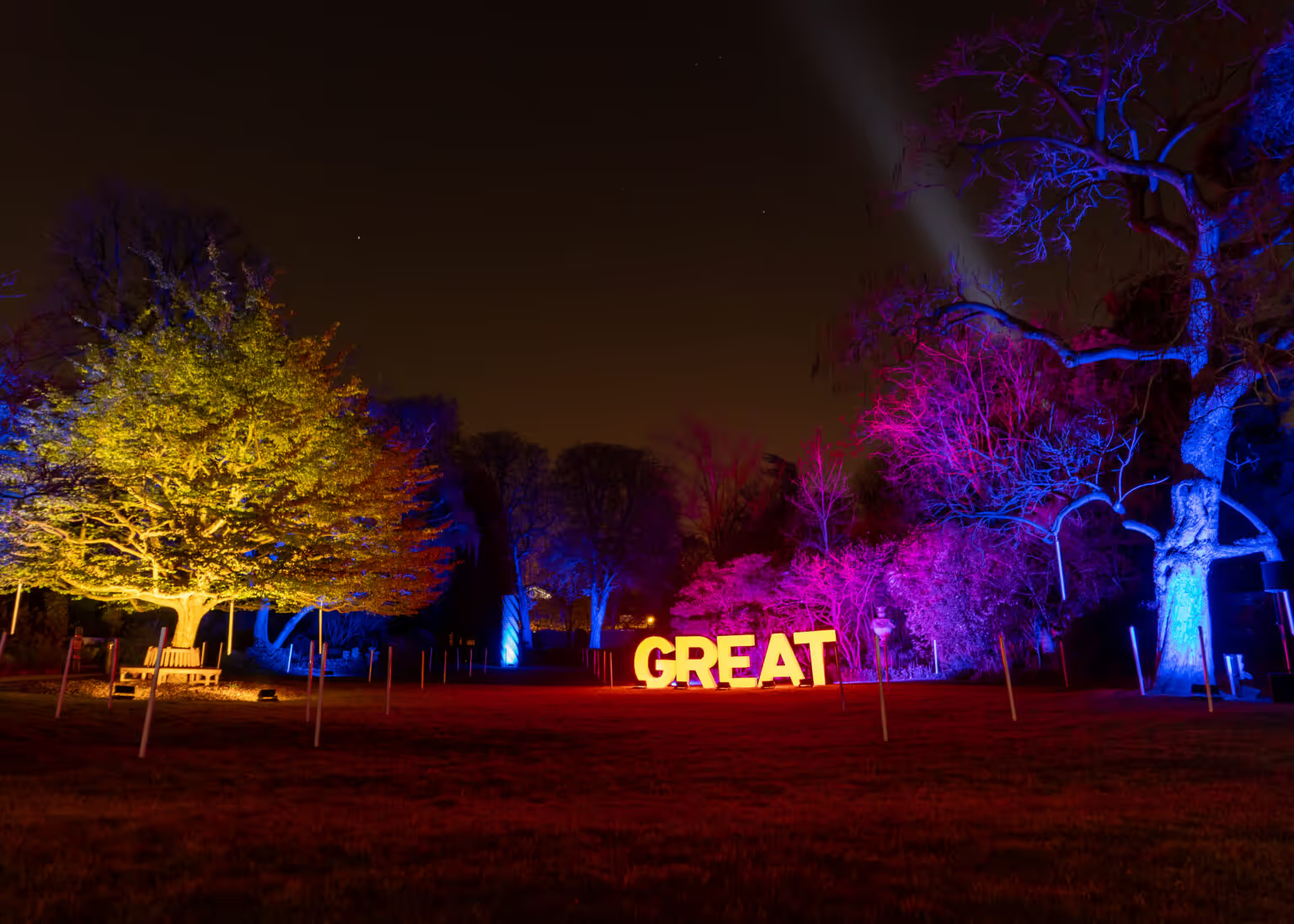



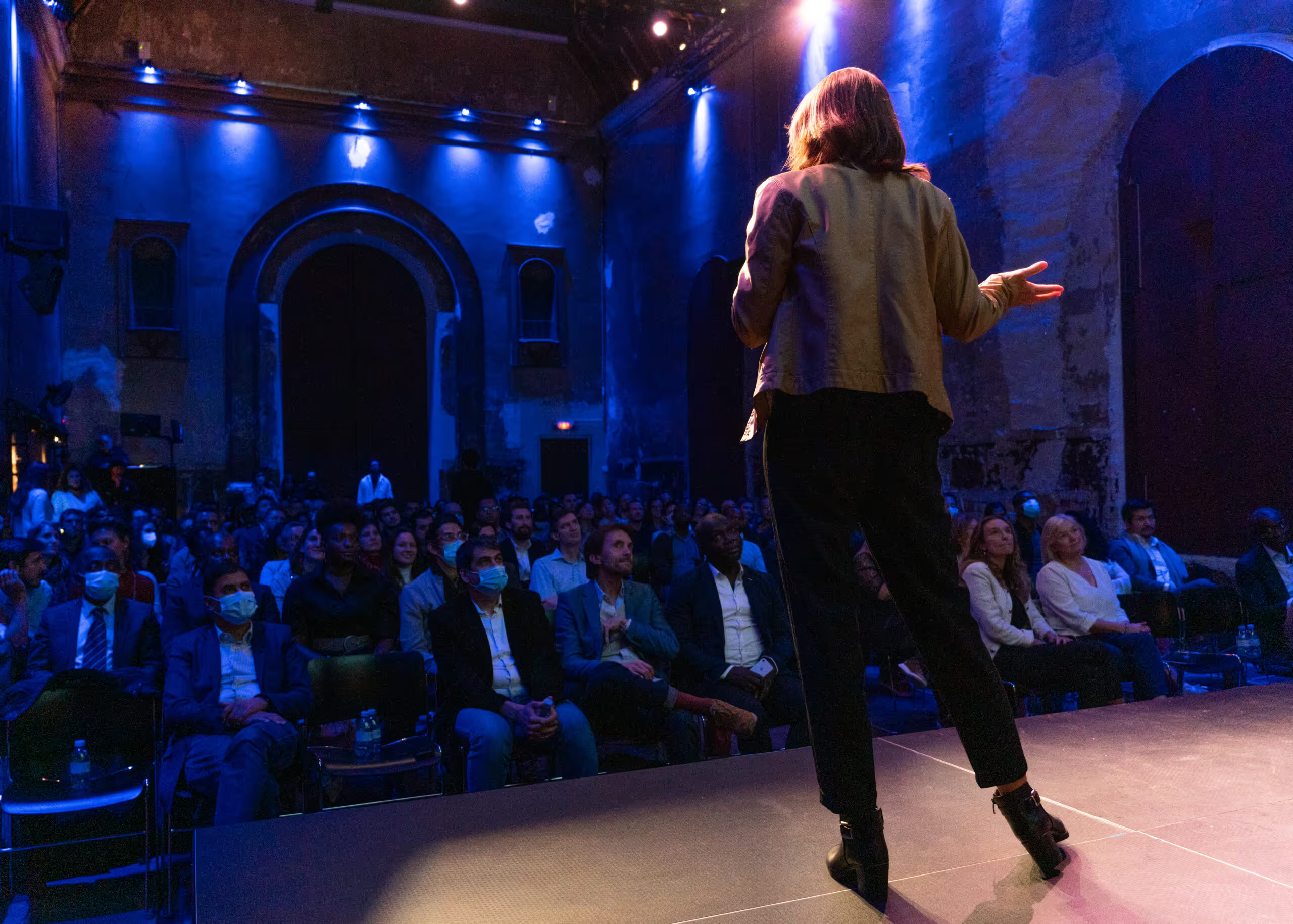

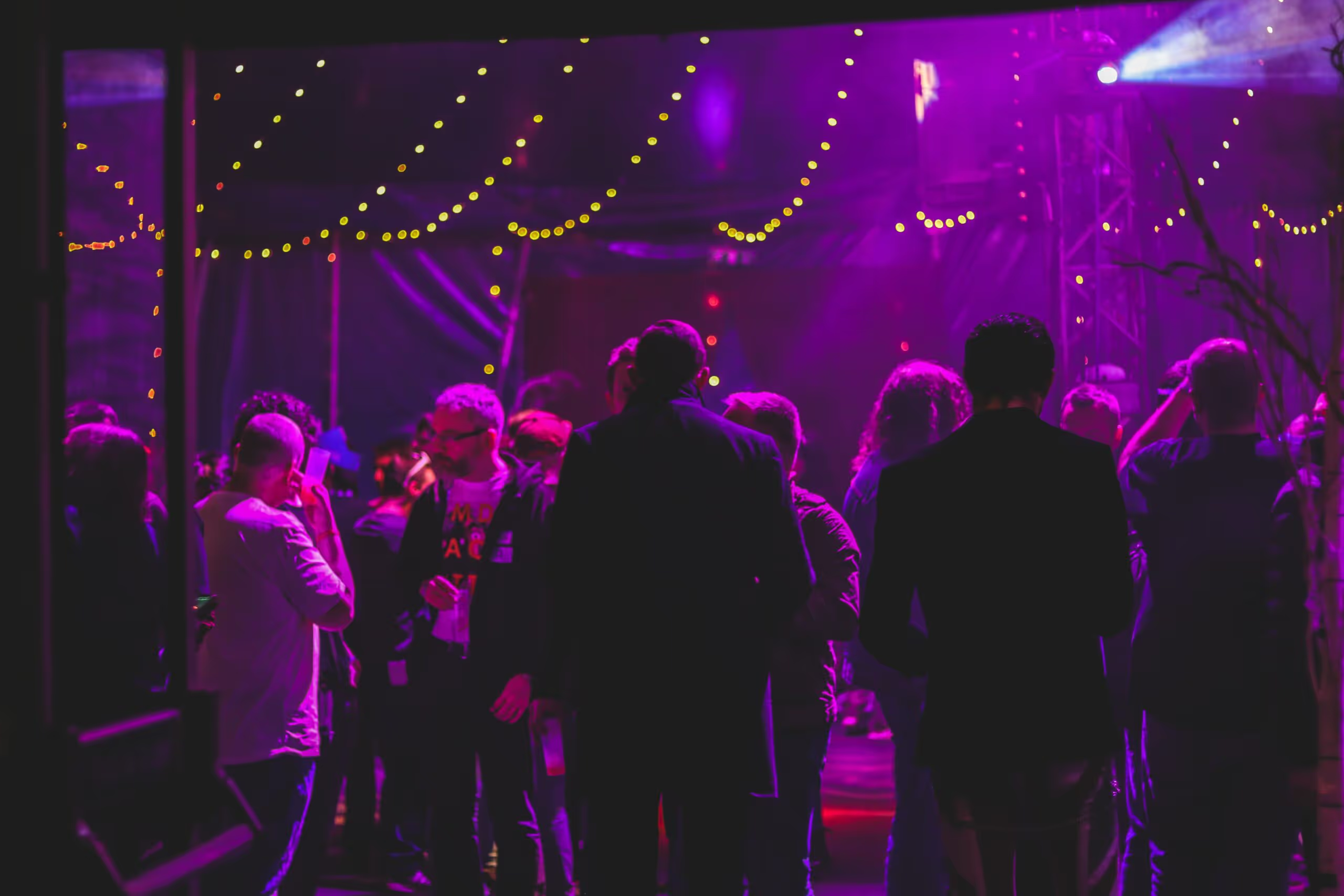

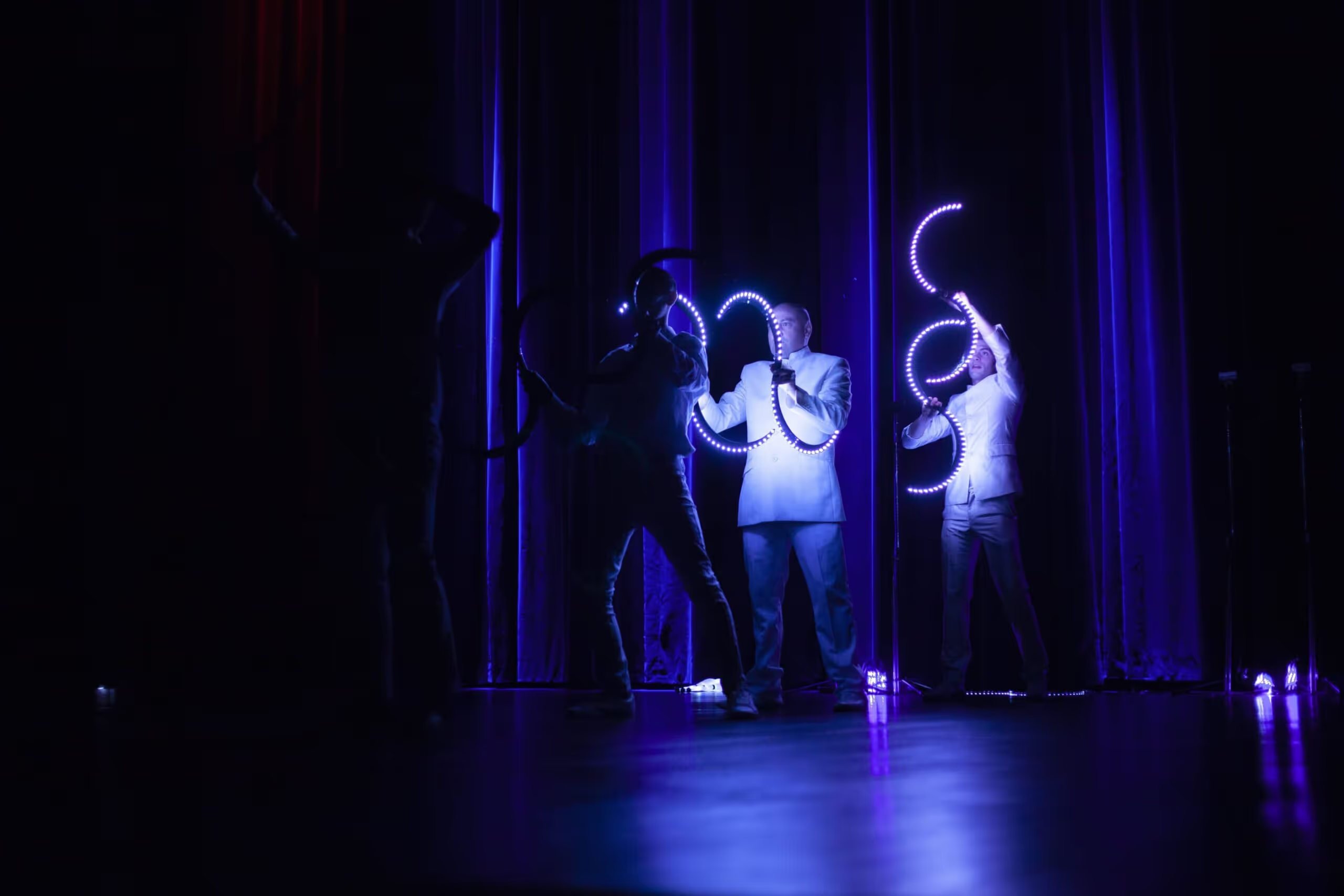

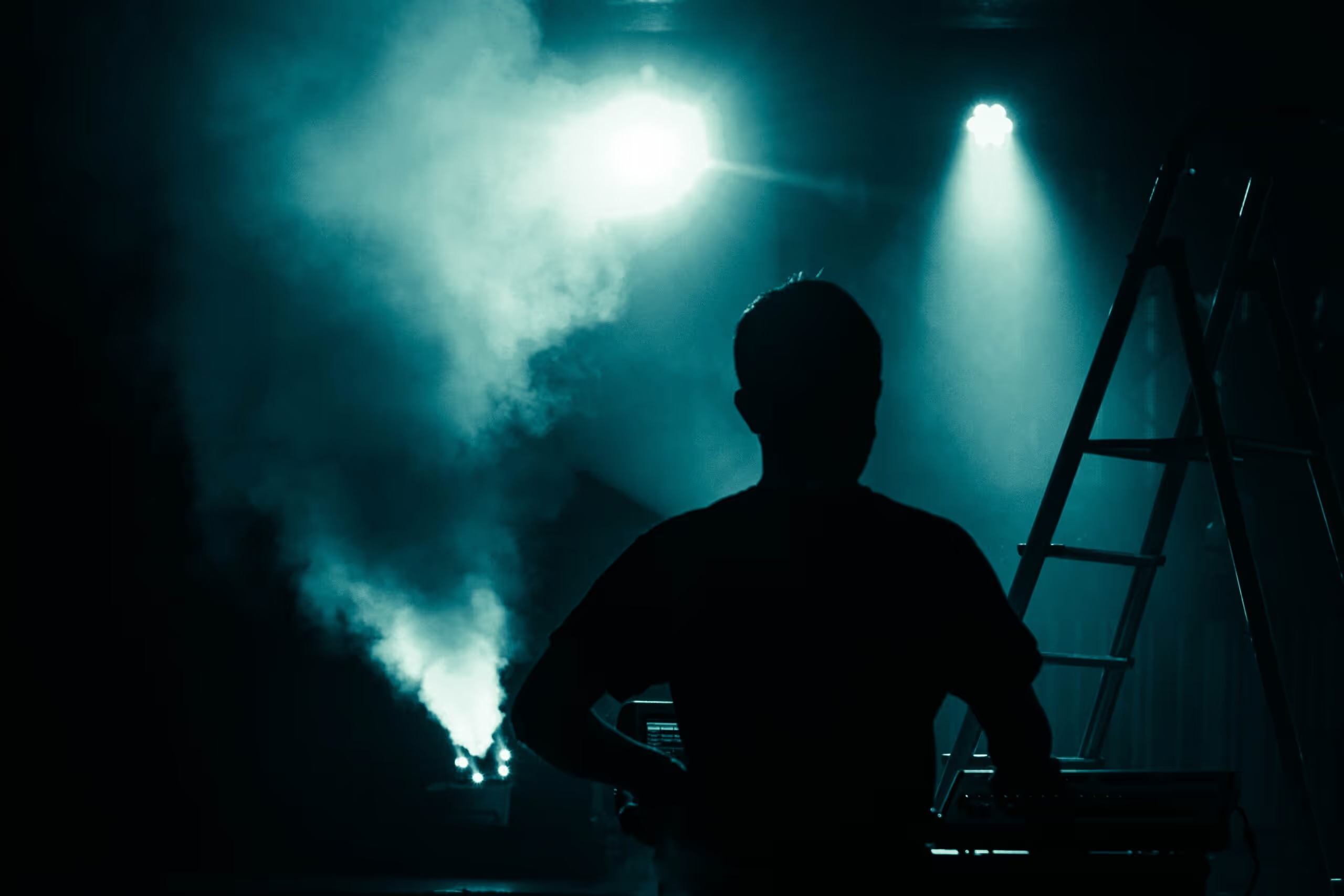


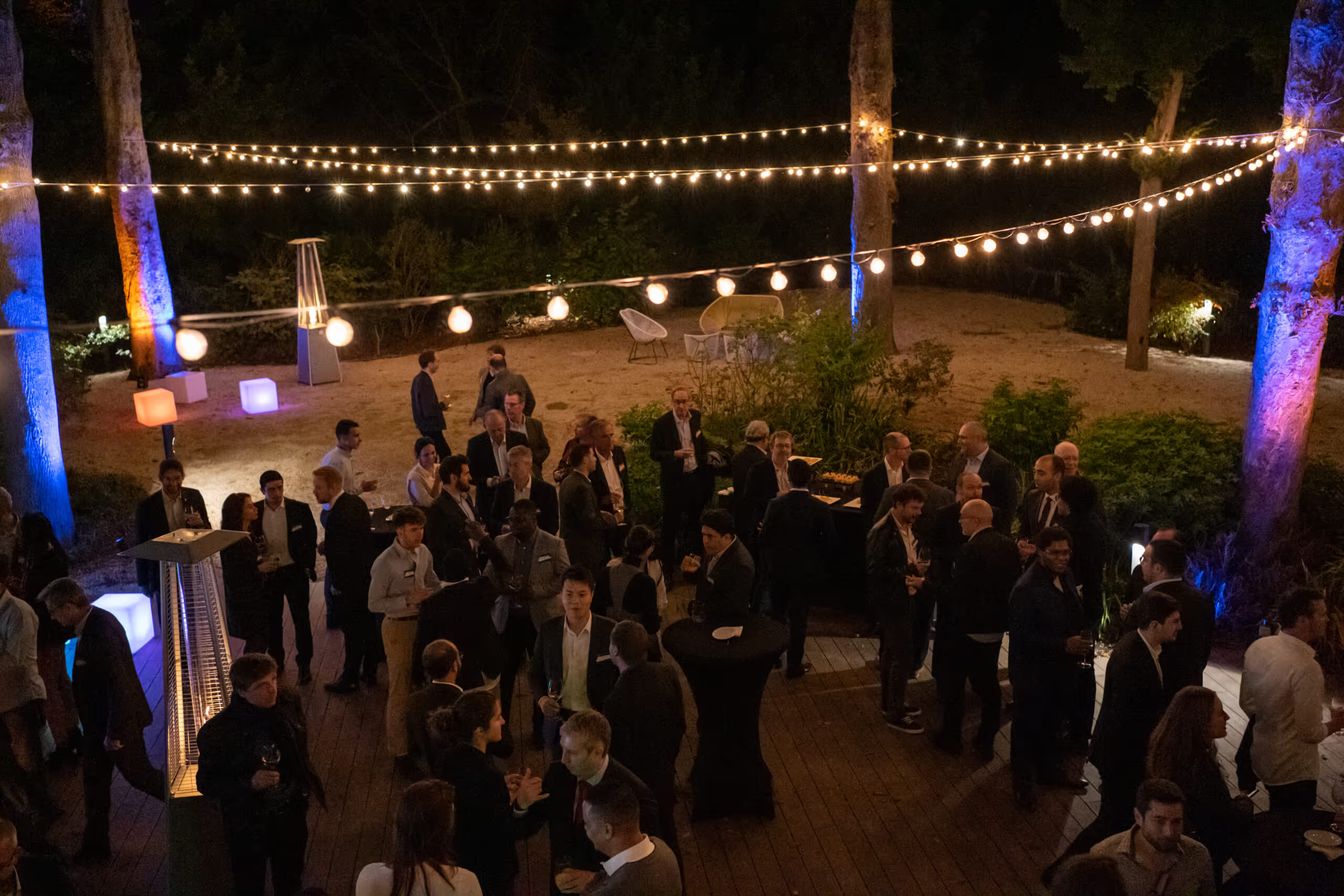




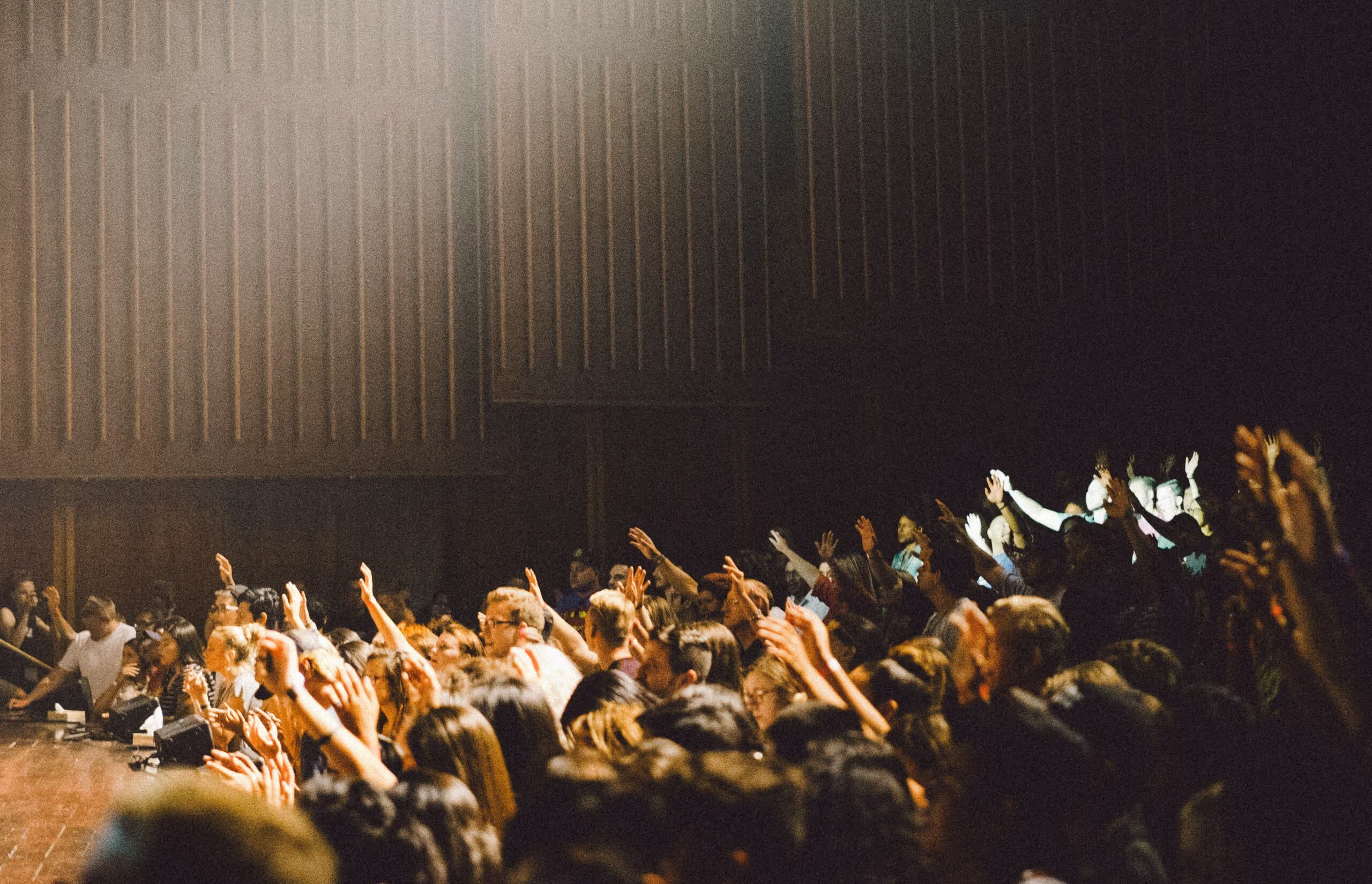






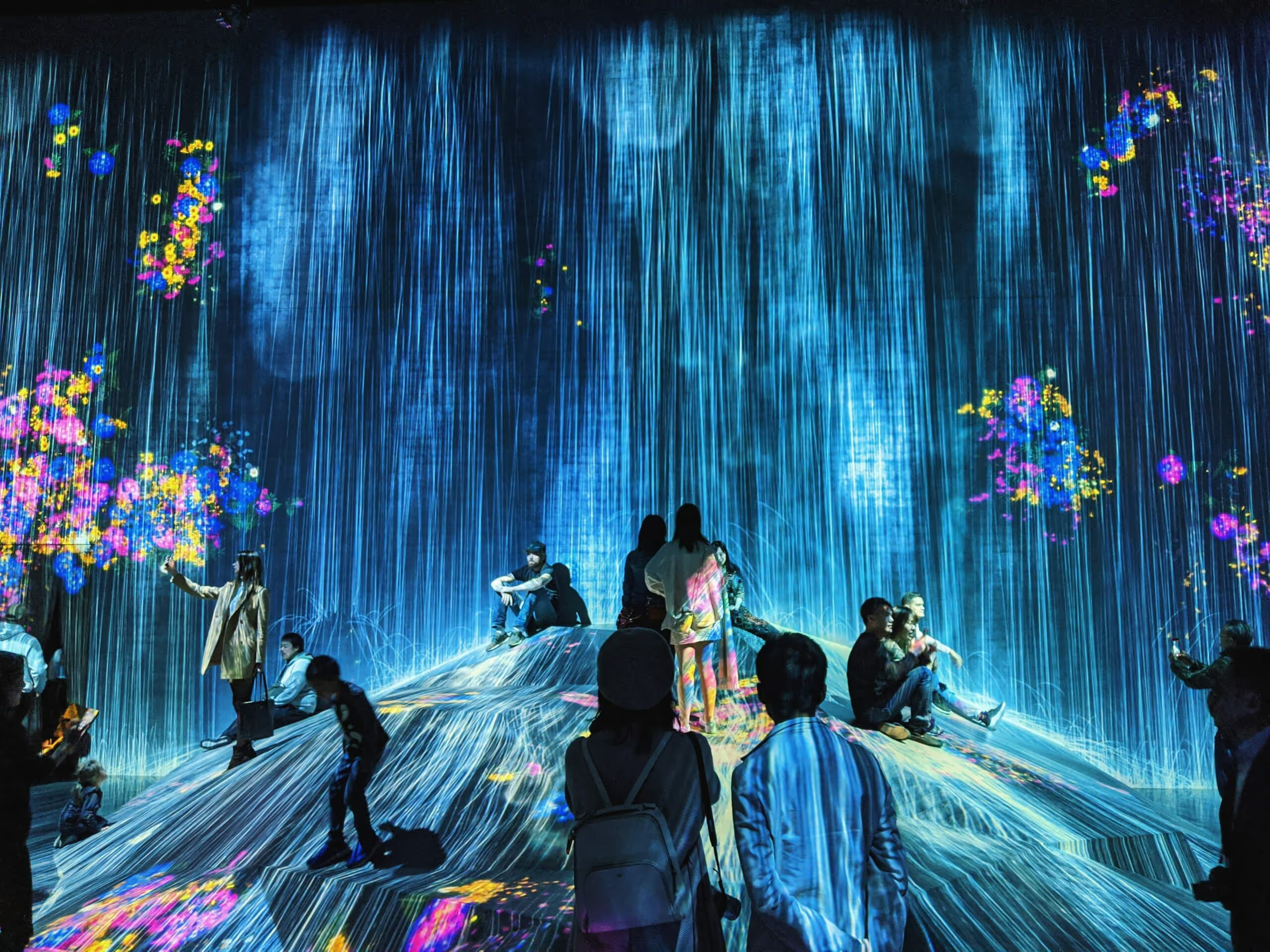



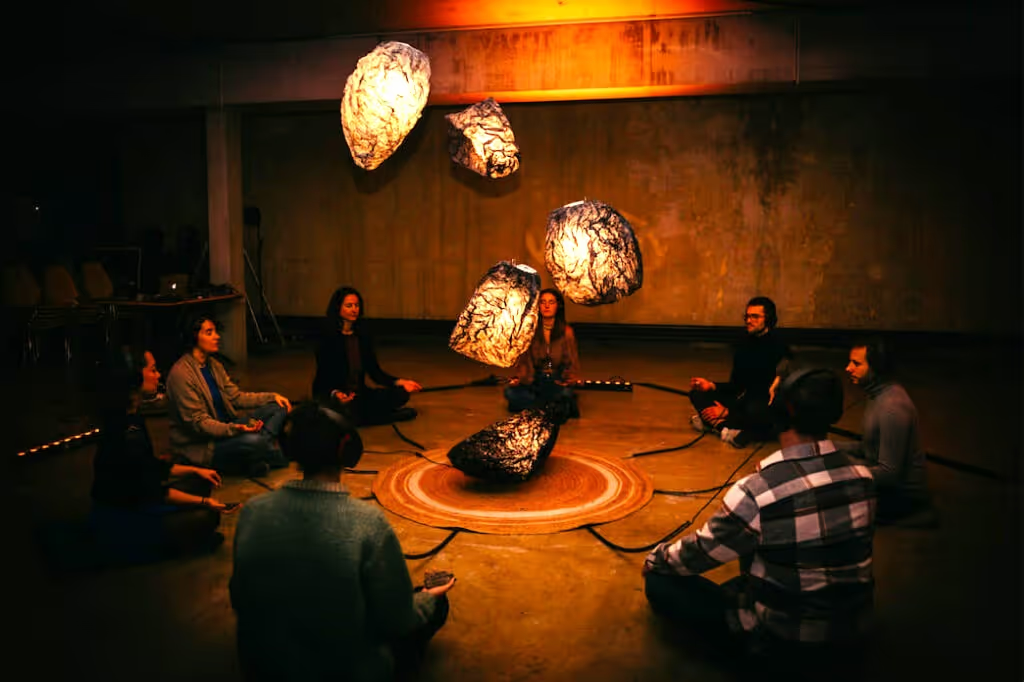
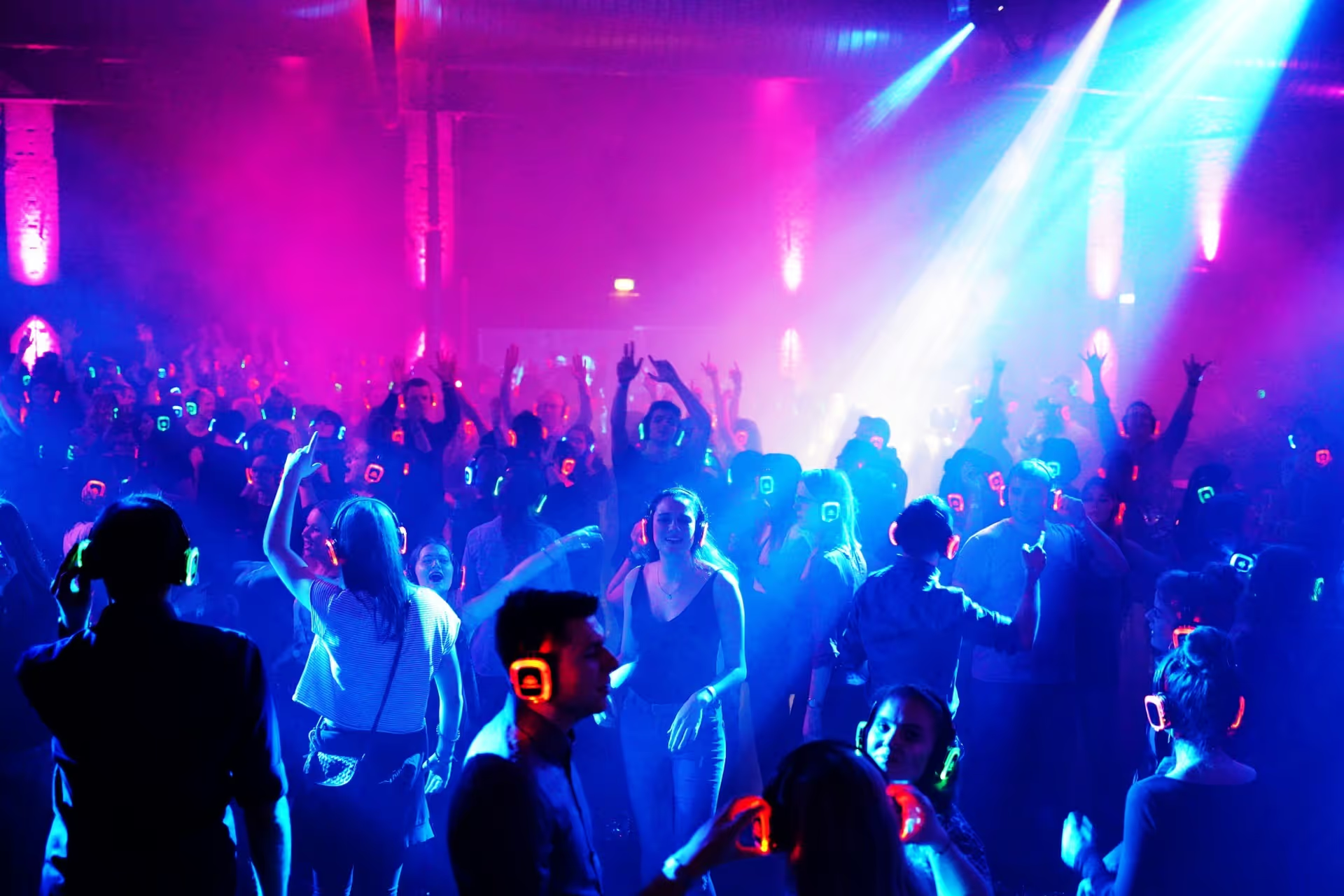

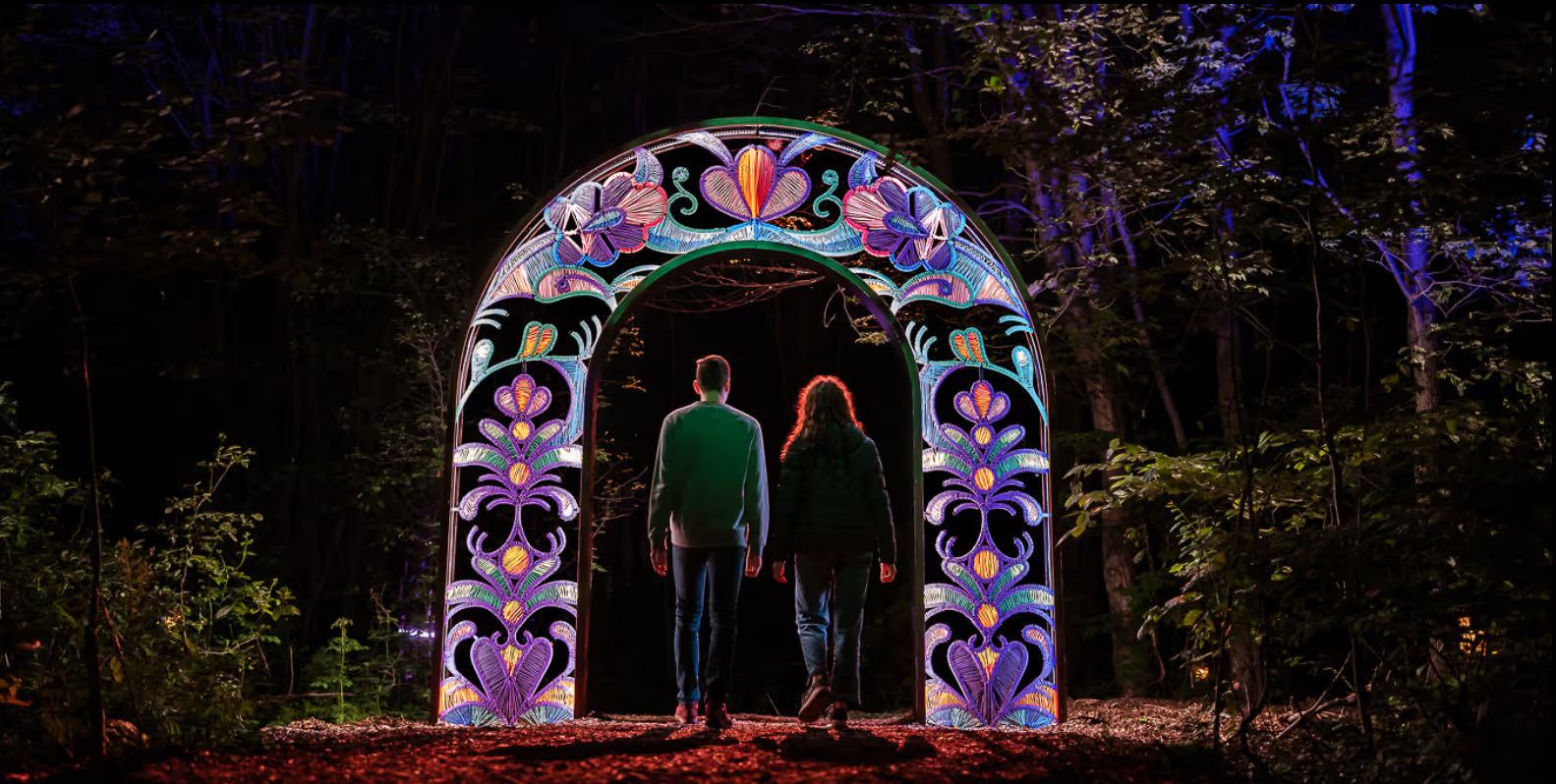





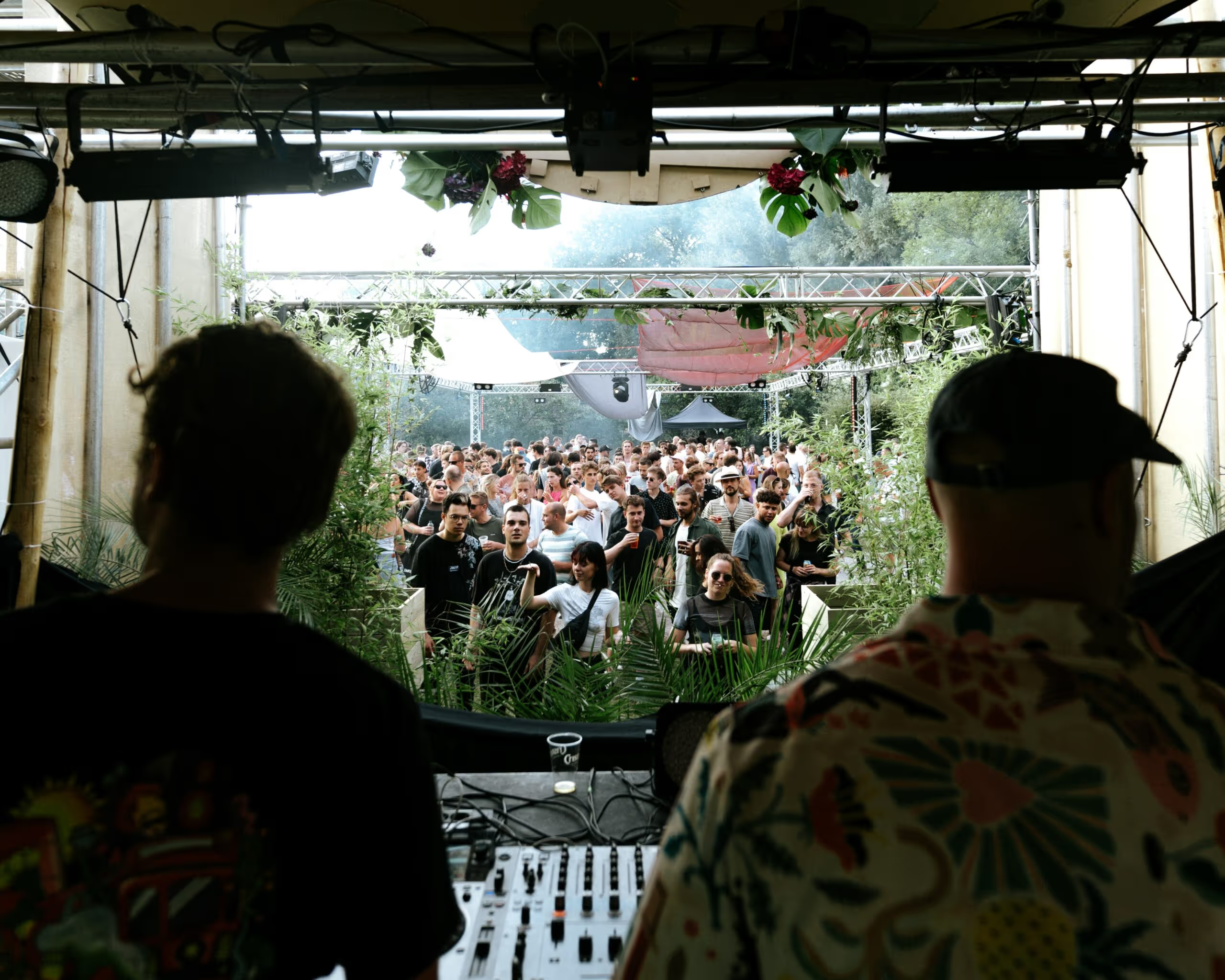

.png)
